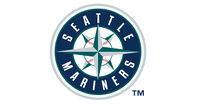| Site Notice |
|---|
|
We have a limited coverage policy. Please check our coverage page to see which articles are allowed. |
Seattle Mariners
| Seattle Mariners | ||||||||||
|---|---|---|---|---|---|---|---|---|---|---|
| ||||||||||
| ||||||||||
|
The Seattle Mariners are an American Major League Baseball team based in Seattle, Washington, competing in the American League West division. Originally founded in 1977, the team was later owned by Nintendo from 1992 until 2016, when the company sold most of its majority share. Howard Lincoln, former vice president of Nintendo of America, was the team's CEO during this period.
History
The Seattle Mariners team was initially created as the result of a lawsuit involving the purchase and relocation of Seattle's former baseball team, the Seattle Pilots, to Milwaukee, Wisconsin (the team being renamed the Milwaukee Brewers). A number of Seattle groups sued the American League over the purchase, claiming it was a breach of contract. The suit lasted until 1976 when the two groups settled in court, the American League offering to give Seattle another baseball team in return for dropping the suit. The new team would be owned by a group composed of Danny Kaye and Lester Smith, among others, and Mariners began playing in 1977.
The Mariners became characterized by their losing record and poor attendance. After the 1981 season, the team was sold to George Argyros. Later, in 1989, the team was sold again to Jeff Smulyan.
During the 1992 season, Washington Senator Slade Gorton put together a group of investors known as the Baseball Club of Seattle to purchase the Seattle Mariners after Smulyan had threatened to relocate them, among them Nintendo President Hiroshi Yamauchi, who would hold the majority ownership of the team. Although the deal faced trouble and was opposed as officials did not want a non-American investor to own an American baseball team, the deal finally passed on the condition that the team's chairmanship and presidency remain in America.
In 2004, Yamauchi sold his majority share of the team to Nintendo of America. In 2013, after Yamauchi's death, Mariners CEO Howard Lincoln affirmed that Nintendo had no plans to sell their share of the Mariners.[1]
In April 2016, Nintendo announced that it would be selling the majority of its share in the Seattle Mariners to its partners in First Avenue Entertainment, led by minority shareholder John Stanton.[2] Nintendo kept 10% of its stake in the team. In addition, as part of the deal, Howard Lincoln stepped down as CEO of the Mariners, replaced by Stanton, and announced his retirement.[3] The deal was approved by Major League Baseball in August 2016 for US$661 million.[4]
Video games
Because of their ownership, the Seattle Mariners and its players have been the subject of licensed baseball games released by Nintendo. During the 1990's, the company released a number of titles using popular Mariners player Ken Griffey Jr. exclusively to the North American market. These games include: Ken Griffey Jr. Presents Major League Baseball (SNES, Game Boy), Ken Griffey Jr.'s Winning Run (SNES), Major League Baseball Featuring Ken Griffey Jr. (Nintendo 64), and Ken Griffey Jr.'s Slugfest (Nintendo 64, Game Boy Color)
In 2007, Nintendo launched Nintendo Fan Network, a downloadable application for Nintendo DS exclusively available during home games at Safeco Field. Initially a paid service available by download through special kiosks in the stadium for US$5[5], the service was later made available for free[6], and even later was released as a DSiWare application, available for both Nintendo DSi and Nintendo 3DS. The network allows fans to view game footage and statistics and order food to be delivered to their seat.
Nintendo have also frequently advertised their games, consoles, and products during home games.
External links
References
- ↑ Nintendo has "no plans" to sell stake in Seattle Mariners. GameSpot (September 23, 2013). Retrieved August 30, 2016).
- ↑ Mariners to be sold by Nintendo to ownership group led by John Stanton. The Seattle Times (April 27, 2016). Retrieved August 30, 2016.
- ↑ CEO Howard Lincoln leaving Mariners with ‘a few regrets’. The Seattle Times (April 27, 2016; updated April 28, 2016). Retrieved August 30, 2016.
- ↑ Notice Regarding the Sale of a Portion of Ownership in the Entity which Operates the Seattle Mariners. Nintendo (August 22, 2016). Retrieved August 30, 2016.
- ↑ Seattle fans can take DS out to the ballgame. NBC News (July 24, 2007). Retrieved August 30, 2016.
- ↑ Seattle Mariners' in-stadium DS service goes free. Engadget (April 22, 2008). Retrieved August 30, 2016.
